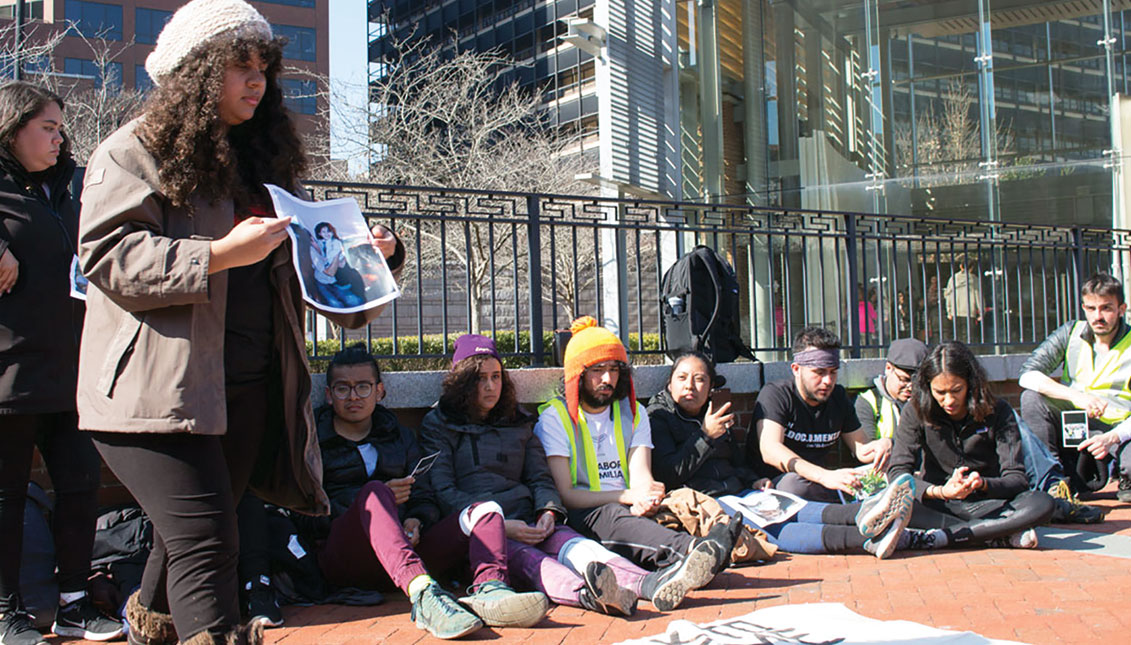
Education without documents: the challenge of the immigrant
Immigration and the permeability of borders have been a matter of debate for decades, but the stigmatization of foreigners has had a major resurgence in recent years.
Thanks to political campaigns and phenomena such as that of Donald Trump, the image of the immigrant has succumbed again to stereotyping, becoming homogenized in adjectives such as "illegal," "trafficker," "rapist," "bad hombre."
The reality is, obviously, a different one.
The immigrant community in the United States is a tapestry of identities determined not only by origin but also by context and particular circumstances, as well as the opportunities obtained along the way.
Regarding education, the situation is even more specific.
Like the one who starts a marathon with delay, the immigrant community has had to overcome the difficulties of adaptation suffered by the first generations and recover the distance with its white and “citizen” counterparts in the professional career.
According to data from the Department of Education, estimates “indicate that 80,000 undocumented youth turn 18 and approximately 65,000 to graduate from high school every year.” This implies that only "54 percent of undocumented youth have at least a high school diploma, compared to 82 percent of their US-born peers.”
The department's report adds that "only 5 to 10 percent of undocumented high school graduates continue their education and enroll in an institution of higher education, and far fewer successfully graduate with a degree.”
Faced with the failure of the Dream Act in Congress, and the ongoing attacks by the current administration against undocumented youth who arrived in the country as children (Dreamers), the obstacles to accessing higher education are becoming increasingly intractable.
These young people don’t only come, for the most part, from homes that struggle to pay their monthly bills; their status also makes it more difficult for them to access jobs or universities whose enrollment could even be conceivable in a family budget.
Although states like Texas, California, Utah, New York, Washington, Illinois, Oklahoma, Kansas, Nebraska, New Mexico, and Wisconsin approved state measures to allow undocumented students access to in-state registration and tuition, student loan debt and difficult access to scholarships remains a demoralizing factor in the community.
CONTENIDO RELACIONADO
Similarly, President Trump's decision to rescind the Deferred Action for Childhood Arrivals Program (DACA) has given the green light to some states such as Arizona, Georgia, and Indiana to prohibit access to lower tuition for undocumented students.
However, there is a force in the community that will not let itself be intimidated and that has transformed obstacles into spiritual force.
According to a joint report by The State and The Hechinger Report, "about 87 percent of the young people in the DACA program are employed, and America’s 1.3 million DACA-eligible youth, including those who haven’t enrolled, contribute an estimated $2 billion in state and local taxes."
However, even though one of DACA's purposes was precisely to allow young Dreamers to work, The State emphasizes that "work in itself can become another obstacle to sleep."
"Many must also help support their families," adds the media. “They usually lack mentors to help them prepare for college and often would be the first in their families to go. They routinely face unsupportive higher education administrators and policies that discourage undocumented students from going to college and offer little to help them adjust if they make it there.”
The requests of these undocumented youth is that faculties and universities provide "legal, financial and emotional support," as Maria Sotomayor, deputy director of the Pennsylvania Coalition for Immigration and Citizenship (PICC), said in a 2018 interview with AL DÍA.
Sotomayor, who was an undocumented student and graduated from the University of Neumann, said that the work of communities and organizations for the rights of immigrants is to "call for schools to be clearer in their public admissions policy, practice tuition equity, create and continue to foster financial aid options for undocumented students, train admissions and faculty about the immigration system, create welcoming campus policies, and build relationships with other immigrant advocacy organizations.”
It remains to be seen at what level those changes will be made across higher education institutions in the U.S.










DEJE UN COMENTARIO:
¡Únete a la discusión! Deja un comentario.